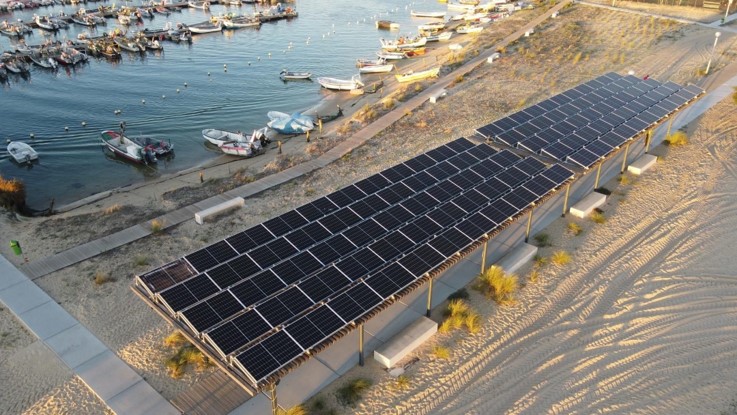


CIMA researchers André Pacheco e Cláudia Sequeira, in collaboration with Jânio Monteiro and Jóni dos Santos from the ISE/UAlg, and José Nunes from MakeItBetter, just published an article focused on the importance of community engagement on energy transition processes. The article covers multiple aspects of a green transition process, including technical, environmental, social, and economic issues. Starting by a participatory diagnosis process, the community of a small island located in Portugal (Culatra Island, Algarve), was challenged to lead the transition process and define different pillars of energy transition. The process brought together local authorities, academia, citizens and companies. Using practical examples, it is shown how the community is succeeding in tailoring new technological solutions for a green transition, according with the specific needs of the island, as expressed by the islanders themselves, including batteries, electric vehicles, retrofitting of homes, or heat pumps, which, when combined, could lay the foundations for the creation of a Renewable Energy Community and leverage socioeconomic benefits.
Abstract (EN): Islands have the potential to be precursors in the transition to clean energy, by adopting new technologies and applying innovative solutions that can serve as showcases at an international level. This paper is a contribution towards understating the importance of community engagement on energy transition processes. It covers multiple aspects of a green transition process, including technical, environmental, social, and economic issues. Starting by a participatory diagnosis process, the community of a small island located in Portugal (Culatra Island, Algarve), was challenged to lead the transition process and define different pillars of energy transition. The process brought together local authorities, academia, citizens and companies. Using practical examples, it is shown how the community is succeeding in tailoring new technological solutions for a green transition, according with the specific needs of the island, as expressed by the islanders themselves, including batteries, electric vehicles, retrofitting of homes, or heat pumps, which, when combined, could lay the foundations for the creation of a Renewable Energy Community and leverage socioeconomic benefits.
Energy transition process and community engagement on geographic islands: The case of Culatra Island (Ria Formosa, Portugal)
Pacheco, J. Monteiro, J. Santos, C. Sequeira, J. Nunes
DOI: https://doi.org/10.1016/j.renene.2021.11.115
https://www.sciencedirect.com/science/article/pii/S0960148121017067